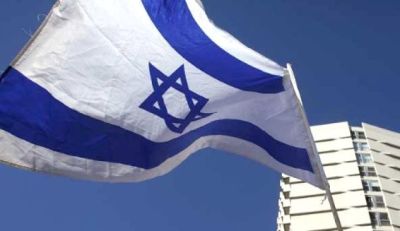Israel's Freedom's Such as Press, Religion and Expression Should Be Allowed to Flourish

Recent news has brought to light several deeply disturbing global phenomena: the precipitous rise of radical Islam, an increase in anti-Semitism, and the decimation of Christian populations in the Middle East. Amazingly, there is one small nation on the frontlines of all three conflicts: Israel.
These troubling phenomena, of course, go hand-in-hand. Where radical Islam grows, so does the violence against Christians and Jews. In an eerie resemblance to the January massacre in France that resulted in 17 murders, another gunman reportedly swearing allegiance to the ISIS terrorist group struck in Denmark at a free speech rally and a synagogue. The war-torn countries of Iraq and Syria, having long ago been made Judenrein, or "clean of Jews," are now seeing the destruction of their Christian populations by ruthless Islamist terrorists who envision a fundamentalist state free of any other religious influence. This assault on Judeo-Christian values and those who hold them dear was again witnessed last week with the barbaric execution of 21 Coptic Christians and this week's abduction of 150 Christians from villages in Syria.
The Jewish people have been the first target in a battle to exterminate opposition to an ideology that has declared war on dissidents. But we have all learned that a threat to people of moral fortitude anywhere is a threat to people of moral fortitude everywhere.
While Israel was established as a safe haven for Jewish people on the receiving end of such threats, it also offers sanctuary to Christians and Muslims who have been on the receiving end of radical Islam. This nation of a little more than 8 million people, and consisting of only .01 percent of the surface area of the Earth, stands as a beacon of democracy and freedom, a refuge for those fleeing hatred.
This modern state of Israel has risen from the ashes of persecution into a phoenix among nations, where people of diverse backgrounds can live in peace. As Father Gabriel Nadaf, a Greek Orthodox priest from Nazareth, stated in his address to the United Nations Human Rights Council in September: "There is one country where Christianity is not only not persecuted," he said, "but affectionately granted freedom of expression, freedom of worship and security. …It is Israel, the Jewish state. Israel is the only place where Christians in the Middle East are safe."
Israel is the one place in the Middle East where the values we in the West hold dear – freedom of the press, freedom of expression, freedom of religion – are allowed to flourish. But it is a flashpoint of controversy. It is reported upon continually in the mainstream media, and is the subject of constant criticism in the media and by world governing bodies like the United Nations.
Thankfully, despite the unwarranted criticism, and despite reports indicating friction between the U.S. and Israeli administrations, polls consistently show that the U.S. public remains overwhelmingly supportive of the Jewish state. One poll, conducted by Gallup in 2013, found that "Americans' partiality for Israel has consistently exceeded 60 percent since 2010; however, today's 64 percent ties the highest Gallup has recorded in a quarter century." The message is clear. Whatever the political climate in the U.S., Americans recognize Israel for what it truly is: an oasis of democracy and liberty in a desert of autocratic, repressive regimes.
Supporting Israel despite this firestorm of criticism requires that we do something that modern society, with its emphasis on tolerance as a virtue that trumps all others, is often loath to do: draw clear moral distinctions between good and evil. The Christian theologian Reinhold Niebuhr, writing in the 1930s as he watched the deadly ideology of National Socialism consume his home nation of Germany, and also recognized an equally deadly reluctance to condemn its rise, put it this way: "Whatever may be the moral ambiguities of the so-called democratic nations and however serious may be their failure to conform perfectly to their democratic ideals, it is sheer moral perversity to equate the inconsistencies of a democratic civilization with the brutalities which modern tyrannical states practice. If we cannot make a distinction here, there are no historical distinctions which have any value."
A tour of Yad Vashem, Israel's Holocaust Museum clearly shows what can happen when we fail to make that distinction and when we fail to take a strong stand on the side of good. The architecture on the outside of the museum is beautiful, but inside, the mood is very dark. It chronicles the systematic murder of six million Jews. It also chronicles something else: the fact that an overwhelming number of Christians were indifferent to what was happening right in front of them.
Thankfully, there is a reminder of the few that did stand against the evil around them; those are the people we must emulate, the Righteous Among the Nations.
Of course democracies like the U.S. and Israel are not without flaw, but it is indisputable that we stand on the side of order, the rule of law, and freedom. And unabashedly standing for these values is the only thing that will help us combat the rising threats of radical Islam, anti-Semitism, and religious intolerance. It is essential that Jews and Christians – and all people whom value freedom and personal liberty – recognize our shared value system, and that we act in concert, both on the political and the personal level, to ensure that those values are upheld.
At the end of the day, the fate of all free nations, and of democracy and the democratic institutions that we have spent such a long time developing and perfecting, may depend on our unity. And that is a concern not just for the U.S. and Israel, or for Jews and Christians, but for all of us.





























